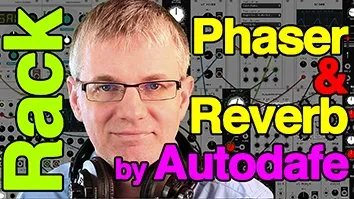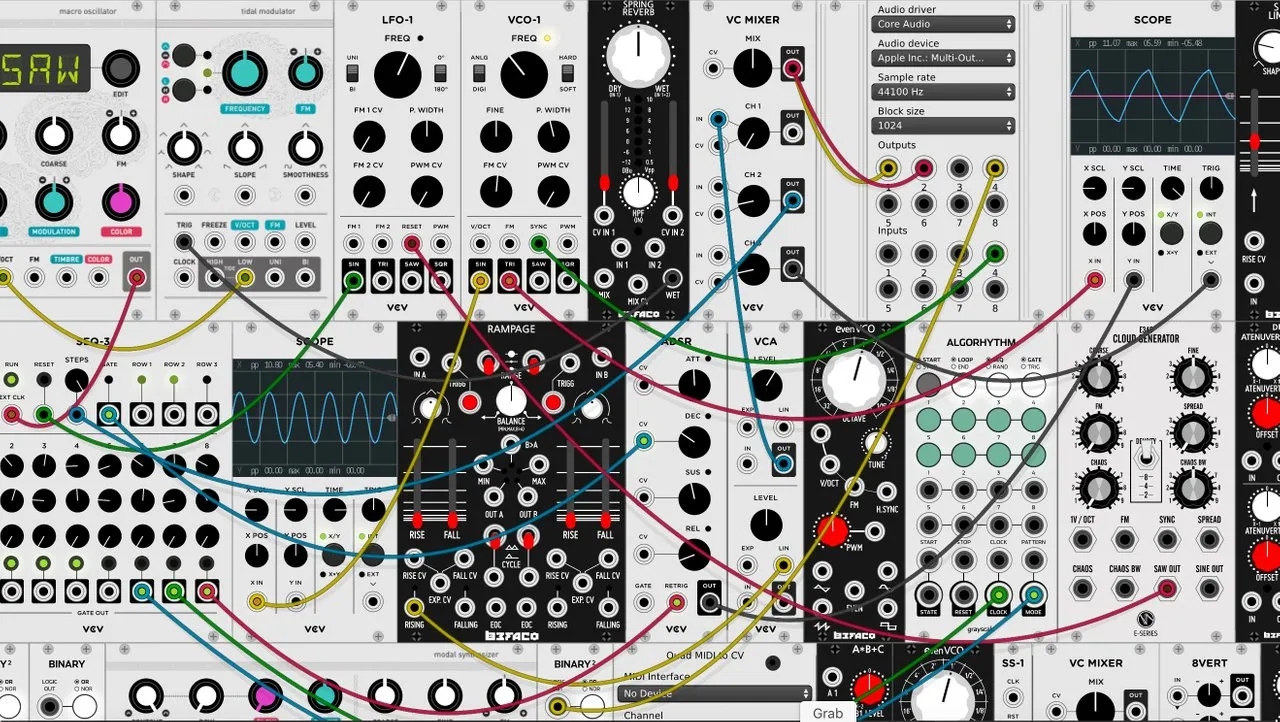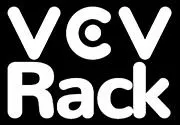What Will I Learn?
- You will learn how to use Autodafe's Reverb module.
- You will learn how to use Autodafe's Phaser module.
- You will learn what is waveform phasing.
- You will learn the purpose of Feedback and Depth in phasing.

Requirements
To complete this tutorial learners will need to have the following:
- The software application VCV Rack installed
- Access to the Internet
- An account created on www.vcvrack.com
- Fundamental and Autodafe plugins installed
Difficulty
This tutorial is at an Beginner level.
Description
Learn how to use Autodafe's Reverb module
Reverb is a very important effect when synthesizing sound. Reverb provides an ambient sound to your patches. There are a variety of reverb modules available to you with an infinite number of sound combinations.
Autodafe provides us with a simple Reverb module. It provides one simple ambient timbre which you can apply to you patches. It sounds like this module is emulating a plate reverb effect.

There are only two controls on this Reverb module: Time and Dry/Wet. Time is the amount of time it will take for the ambient sound to fade away to silence. The Dry/Wet selection is the ration between the amount of original to effected sound you hear in the OUT.
What is waveform phasing.
Consider that when a waveform starts its cycle its start is at zero on a time scale. If we duplicate the waveform and play it at the same time as the first there will be little change in the timbre of the sound. If we take the new waveform and delay it by a millisecond or so and play both again the sounds will be phased. They will sound 'wobbly.' This is phasing. A Phase module will not just put the two waveforms out of phase but it will move them gradually in and out of phase in a cycle.
How to use Autodafe's Phaser module and what is the purpose of Feedback and Depth.
Autodafe's Phaser module is very simple to use. There are three controls: Rate, Feedback, and Depth. Rate refers to the speed that the Phaser goes through its cycle of bringing the waveforms in and out of phase. Depth is the amount that the Phaser put them out of phase. With the Feedback control, Phaser introduces a specified amount of the new signal it has created back into the mix.
In the video tutorial I go into great detail on how phasing works. I demonstrate how the interaction between the initial wave and the effected wave create something new. The amount of Feedback and Depth can have great impact on the sound produced. As with any effect, exploration is important. Use Phaser on some of your projects and see how it fits into your music.

VCV Rack is an open source application, which means that it is free for everyone to use. Please consider going to the developers' website and show your support for the project - http://www.vcvrack.com

I hope you enjoy this tutorial. If you have any specific questions for me feel free to leave it in the comments of this post and I will do my best to get back to you with an answer.
Cheers,
@buckydurddle
Video Tutorial
Curriculum
Learn VCV Rack Modular Synthesis Series

VCV Rack - Modular Synthesis, Plugin Manager, Customize UI
VCV Rack - VC Mixer, Patching, & VCO-1 to VC Mixer
VCV Rack - 1st Setup, Multi-Outputs and Audio Interface
VCV Rack - Scope, MIDI, Organizational Tools
VCV Rack - Delay Module - Time, Mix, Feedback
VCV Rack - VCO-1 & VCO-2 and Their Functions
VCV Rack - 8vert and Waveform Inversion
VCV Rack - Autodafe Modules - Keyboard, BPM Clock, LFO
Learn Hydrogen Drum Machine Series

Hydrogen - Rhythmic Resolution
Hydrogen - Effective Beat Making
Hydrogen - Song Editor, ADSR, Importing DrumKits from Respositories
Hydrogen - Humanize (Velocity, Timing & Swing)
Hydrogen - New Instruments, Loading Samples & Multiple Sample Sounds
Hydrogen - Beat Counter, BPM & Other Tempo Tools
Learn Helm Series

Helm 1st Oscillator Video Tutorial
Helm 2nd Oscillator Video Tutorial
Learn Audacity Series

If you would like to learn how to use the open source sound recording and editing software Audacity then have a look at these tutorials:
1 How to Create a New Audacity Project
2 How to Open or Import Audio Files in Audacity
5 How to Save an Audacity Project
7 How to Set Input Volume Levels
8 How to Export MP3 and WAV Files
9 How to Select and Delete Sound
ACTIVITY 1 - My First Recording
10 How to use Undo and History in Audacity
12 How to Use the Time Shift Tool
13 How to Use the Change Pitch Effect
ACTIVITY 2 - Make Your Voice Sound Like a Chipmunk
14 How to Use the Fade In & Fade Out Effects
15 How to Download Sound Samples from the Internet
16 How to Use the Amplify Effect
ACTIVITY 3 - Multitrack Recording in Audacity - Beatbox
21 How to Use the Change Tempo Effect
22 How to Use the Equalization Effect
ACTIVITY 4 - How to Mess Up a Piece of Music
25 How to Remove Vocals from a Recording
SETUP - How to Install the LAME Encoder
Logo - http://tytel.org/helm
Logo - https://www.audacityteam.org/
Logo - http://www.hydrogen-music.org/hcms/
Logo - https://www.vcvrack.com
Posted on Utopian.io - Rewarding Open Source Contributors